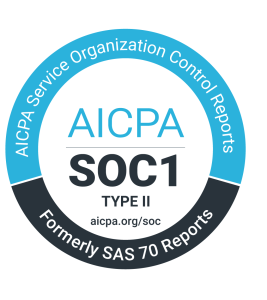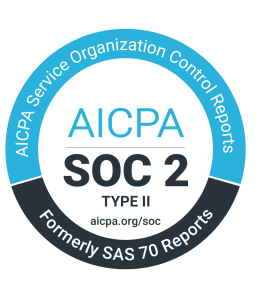Owning a marijuana dispensary in California requires passion, hard work, access to serious financial capital, and personal fortitude. Agility and flexibility are also crucial as even the most successful owners began their cannabis dreams by filing demanding retail storefront license applications. The reward is owning a wellness-based retail operation that genuinely helps people and will most likely generate desirable profits. In the new world of regulated cannabis in California, you must obtain a license before opening a legal cannabis dispensary, a journey for which you must prepare. So before you start down this road, it’s essential to know how to apply for a California cannabis dispensary license. This guide is a great place to start as we highlight the basics and provide helpful links to point you in the right direction.
All Politics Are Local
California utilizes a two-tiered licensing system for all cannabis businesses, and everything starts at the local level. A potential owner must prepare and submit a dispensary license application with a local city or county government. If approved, the applicant can then apply for a state license via California’s Bureau of Cannabis Control (BCC). While the two application processes require similar documents, local government regulations may differ from BCC requirements. For example, the Los Angeles Dept. of Cannabis Regulation requires that a licensed retail storefront be “outside of a 700-foot radius of a School, Public Park, Public Library, Alcoholism or Drug Abuse Recovery or Treatment Facility, Day Care Center, and Permanent Supportive Housing, and any other licensed storefront retailer.” The BCC requires a 600-foot radius for schools. For potential California dispensary owners, Rule One is to research and fulfill all local cannabis requirements as you must have a local permit before applying for a state license with the BCC.

Create a Plan for Filing an Application
Filing applications for local and state cannabis licenses in California is a complicated, time-consuming endeavor. And of course, given the highly competitive nature of securing a license, there is no guarantee that the applicant will prevail. Rule Two is to properly prepare all the needed documentation well in advance of submitting the local and BCC application. Again, local requirements may differ, but at a minimum, you’ll need to:
- Establish a formal business entity registered with the California Secretary of State.
- Research community zoning laws for cannabis dispensaries (AKA Green Zones).
- Prepare a comprehensive business plan.
- Secure a physical location for the dispensary before submitting the application.
- Prepare a neighborhood impact plan.
- Prepare a location site and facilities plan which meets all security, Cal-OSHA, fire department, building code/local ordinances, and BCC requirements.
- Possibly prepare a Labor Peace Agreement to not oppose employee unionization efforts.
- Obtain general liability commercial insurance, fire, etc.

To assist with the application process, prospective owners often hire attorneys and other professional cannabis consultants. Their experience and technical knowledge help applicants avoid critical mistakes during pre-application planning and filing of the application itself. Elizabeth Barket Kremser, an attorney with Clark Howell LLP explained that “Applying for any California cannabis dispensary license is a complex endeavor. Attorneys help applicants understand the local and state rules and regulations that govern the application process, and review or prepare the proper disclosures. An experienced cannabis attorney is also a key strategic advisor, teeing up the client for successful, compliant operations after licensure. A great attorney will also effectively represent an applicant before local and state officials during the application process, resolving any issues and negotiating when legal or regulatory ambiguities arise.”
Filing an Application with the BCC
Congratulations, you’ve just been issued a local cannabis retail license! It’s worthy of a resplendent, well-earned celebration, but you’re only halfway through the application process. Now it’s time to file your application with the BCC, and like anything online, you start by creating a BCC account. You’ll then provide similar information and documentation gleaned from your local application, but it’s not a copy and paste process by any means. To give you an idea, the BCC’s “Quick Reference Guide” is 44 pages long! The BCC also provides tips on How to Apply, Elearning, and BCC FAQs to help applicants. To review all BCC regulations, go here. The BCC’s online forms for all cannabis businesses, including retail, can be found here.

A License to Thrill
First-time applicants need to decide if they’re applying for a “Retail Storefront” Adult-Use A-License and a Medicinal M-License. Dispensary owners may also conduct delivery sales without applying for a separate “Non-Storefront” delivery license.
During the application process, all applicants must provide (among other documentation):
- The business entity organizational structure.
- Owner/Applicant information and a valid government-issued ID.
- A complete list of owners, entity ownership, and all individuals with financial interests.
- The applicant’s social security number or individual tax identification number.
- A Premises Declaration (able to sell cannabis at the location).
- Cal-OSHA documents and the Labor Peace Agreement.
Additional elements include:
- The applicant’s employment history.
- Any criminal convictions of serious or violent felonies, financial crimes, and certain drug trafficking felony convictions.
Under California’s seed to sale tracking requirements, cannabis cultivation, distribution, transportation, and sales are tracked down to the gram using the metrc marijuana software platform. As a result, the BCC requires documentation describing how the applicant proposes transporting cannabis securely. If the applicant will not transport cannabis, they must declare that they will be contracting for transportation. In other words, you must provide an accurate plan.
Because transportation elements need to be stated, it’s no surprise that the applicant must declare the proposed dispensary inventory procedures. How will the dispensary receive shipments of cannabis? How will it store its cannabis inventory, perform inventory reconciliation, ensure inventory records are accurate and maintain accurate inventory records?
The applicant must also state how the dispensary will limit or prevent the deterioration and contamination of cannabis goods and ensure that cannabis goods are properly packaged and labeled. The dispensary must also plan for handling returns and proper destruction procedures. It is illegal for California dispensaries to resell any returned items.
Dispensary security is of great concern, and local regulators along with the BCC require a plan for how individuals will access the premises. The applicant needs to describe how all access points are secured, the use of security personnel, and a description of the applicant’s alarm system. The application must also detail the dispensary’s video surveillance system, including camera placement and maintenance of the video surveillance equipment.

The Price for Entry
The BCC requires a $1,000 application fee for retailers, a $5,000 California Marijuana Surety Bond, and annual license fees for retailers that range between $4,000 – $96,000 depending on projected and actual revenue. Individual cities and counties may also require a surety bond and separate license fees. BCC applicants must also declare their estimated taxes for the upcoming year. The annual cannabis business license requires payment of both the application $1,000 fee and the yearly license fee. The applicant pays the application fee after submitting the owner’s “Attestation Amendment” (declared under penalty of perjury). It’s important to note that the BCC will not review the application until the applicant pays the application fee.
There are many rewards for owning a cannabis dispensary in California; you’re helping people achieve better health and wellness, providing needed jobs and tax revenue, correcting previous social injustices, and creating a new cannabis business community. It’s easy to forget that we’re still in the early stages of this new, grand experiment. We all agree that regulations need to be simplified and less onerous for dispensary owners trying to do the right thing. When applying for a dispensary license in California, plans, details, and procedures matter greatly to state and local regulators. You need to do it right, plan accordingly, and seek help when you need it.
When you’re ready, learn how BLAZE Retail can improve your dispensary POS operations. Stay compliant with seamless metrc integration and protect your hard-won dispensary license. Book a Demo or call us at (415) 964-5689 to learn more.



